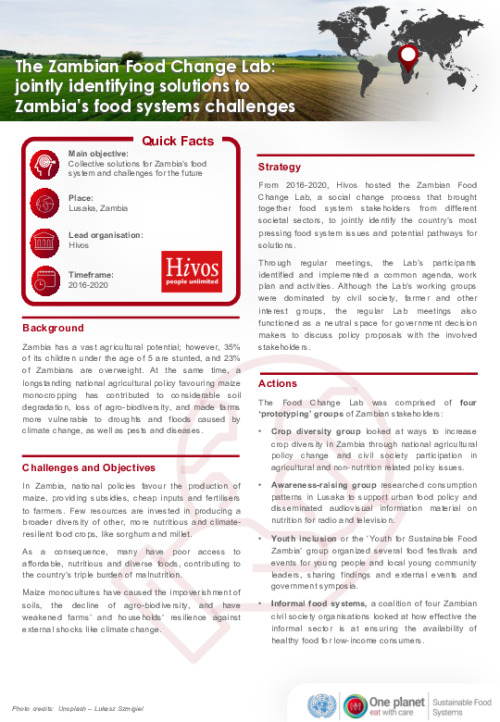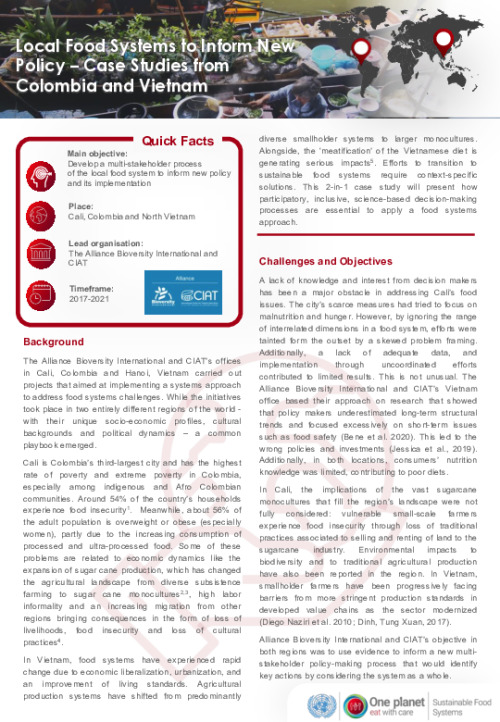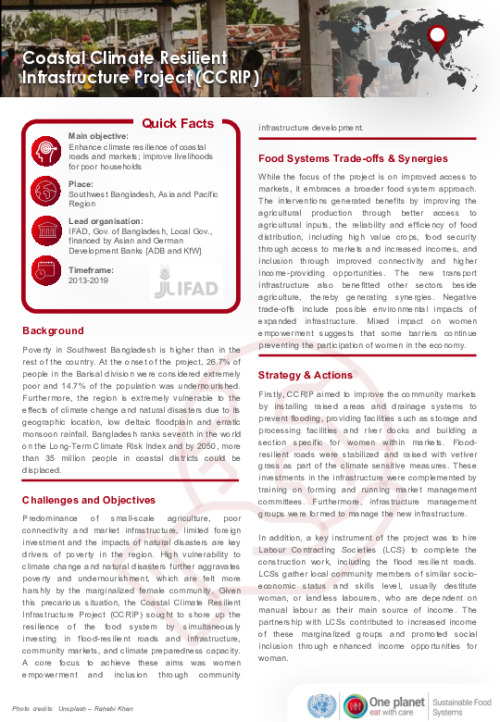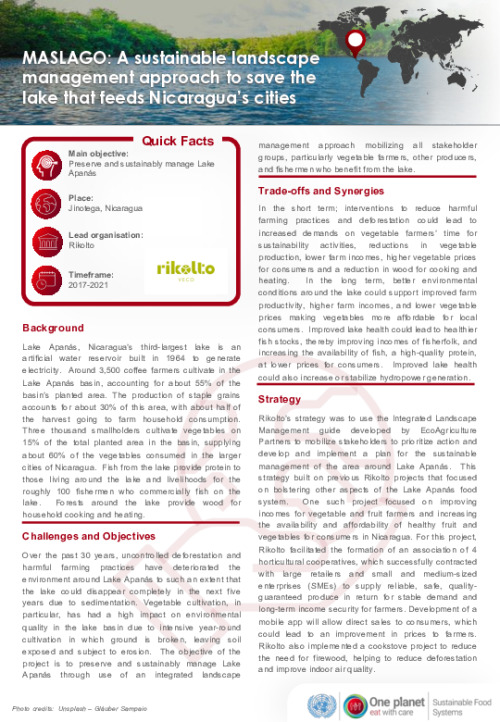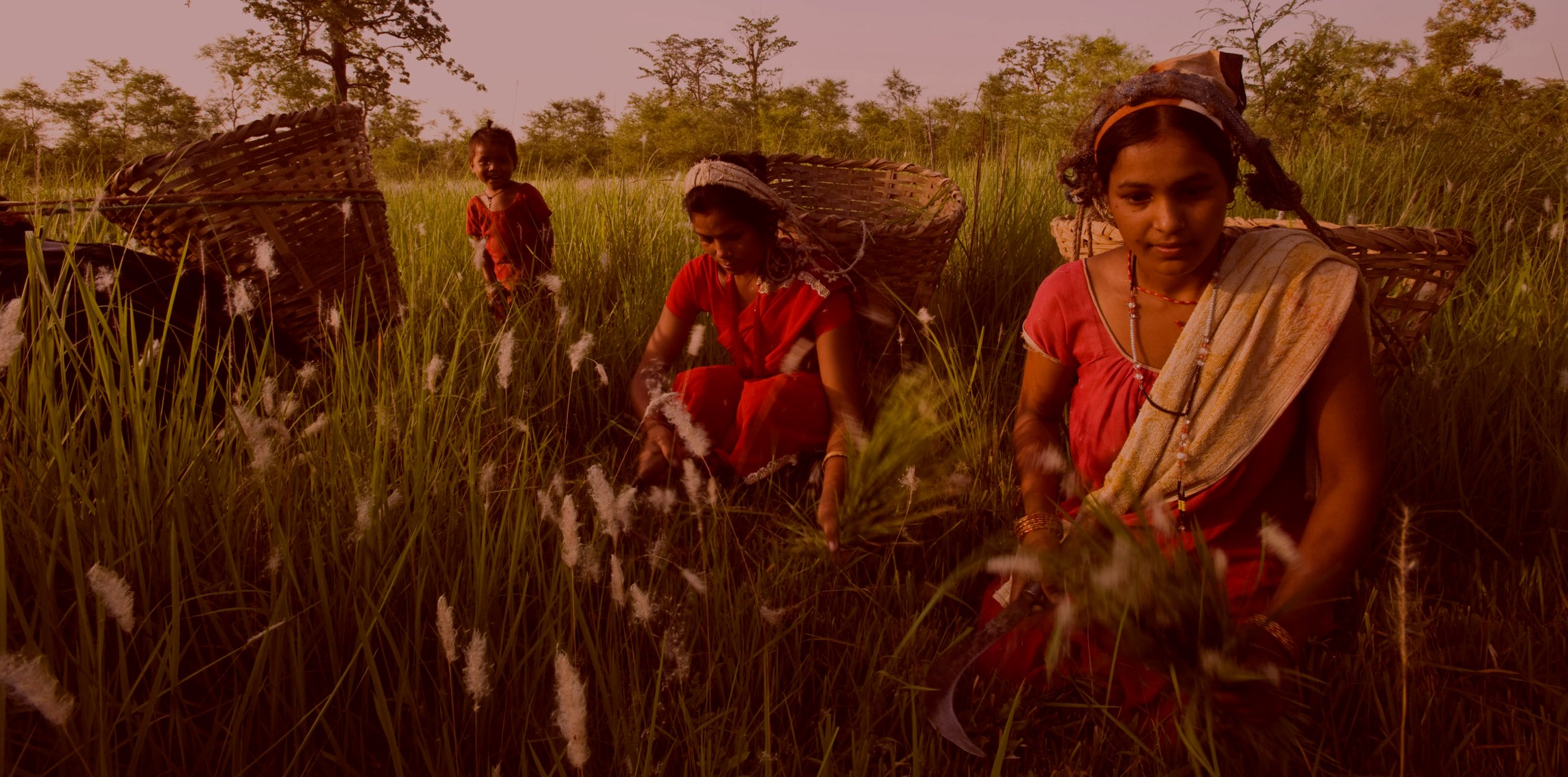
Sustainable Food Systems Programme
Tools
Tools by the SFS Programme
The Sustainable Food Systems Programme has developed a suite of tools aimed at supporting the shift towards sustainable food systems.
These resources are aimed at encouraging and guiding countries and other stakeholders to expand their knowledge and step up their action in addressing food system challenges as a way to advance on their SDGs commitments. The range of tools provides knowledge, guidance and inspiration for the urgent need to transform food systems by applying a systems perspective.
The tools

Task team formed by:

Case Studies of Food Systems Transformation
To address the stark interrelated challenges within our food systems - at the scale and at the speed that is needed - sharing knowledge and lessons learned is of the essence. This is why the SFS Programme has developed a series of four case studies from initiatives in four different continents that have attempted to address some of the issues in our food systems through the use of a holistic lens - a "food systems approach".
As a relatively new concept, not all stakeholders in the food systems are familiar or have had experience with the so-called "food systems approach" (for a definition please refer to our publication on food systems key approaches, concepts and terms). Decision-makers across the globe require real life examples, inspiration and proof of concept that can support them in accelerating the shift to more sustainable food systems. A sustainable food systems approach can support decision-makers with the identification of trade-offs across challenges, priorities and available solutions (read why in the Collaborative Framework for Food Systems Transformation). These case studies show examples and tools that four different initiatives implemented to handle trade-offs and produce positive impact.
After issuing an open call to its members, the SFS Programme selected the case studies from CIAT (Alliance of Bioversity International and CIAT), Hivos, IFAD, and Rikolto. For the selection and development of the case studies, a dedicated task force of SFS Programme members was formed, which co-developed an evaluation tool to carefully select the submitted case studies, and co-curated the case studies with respective organizations. The task team was formed by Argentina, Biovision, Costa Rica, INRAe, German Development Institute, Global Nature Fund, Switzerland, UNEP, USDA, and WWF. The International Climate Initiative (IKI) of the Federal Ministry for the Environment, Nature Conservation, Building and Nuclear Safety (BMUB) supports the project
We hope these case studies inspire you!
e-Learning course on Sustainable Food Systems by FAO in collaboration with the SFS Programme
The SFS Programme developed a free series of three e-learning courses on Sustainable Food Systems (SFS), designed to equip you with the knowledge and tools required to apply systems thinking to complex food systems challenges in an integrated manner.
The course series highlights how systems thinking, and taking a sustainable food systems approach, can help to significantly improve our work in project and policy design for sustainable food systems development and transformation.
The courses, that are also certified through the online digital badge system, are now available online, free of charge, as a global public good, through the FAO elearning Academy:
- Sustainable food systems: An introduction
- Sustainable food systems: Concept and framework
- Sustainable food systems: Operationalizing the approach
The three e-learning courses aim to equip food systems stakeholders - particularly practitioners and policymakers - with the knowledge, tools, skills and competencies to apply systems thinking to complex food systems challenges. It emphasizes how systems thinking and taking a sustainable food systems approach helps to significantly improve our work in terms of project and policy design for sustainable food systems development and transformation. It is one of the SFS Programme’s broader set of tools aimed at supporting the shift towards sustainable food systems.
